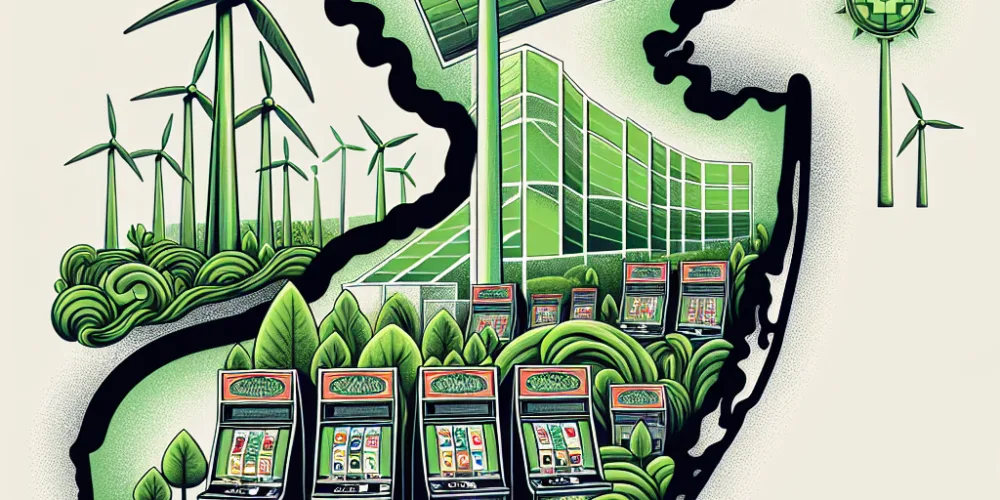In an unprecedented move, New Jersey has announced a new regulatory proposal aimed at transforming the casino floor into a more environmentally conscious space. The initiative focuses on the widespread adoption of eco-friendly slot machines across all casinos within the state. This proposal not merely reshapes the gambling industry but also sets a benchmark for sustainability in high-energy consumption settings.
As of today, New Jersey is home to numerous casinos, with Atlantic City being a hub for gambling enthusiasts from around the globe. The traditional slot machines, which are integral to these casinos, are known for consuming a significant amount of electricity, contributing to the large carbon footprint associated with gaming establishments. The new legislation requires all slot machines in the state to meet strict energy efficiency standards by 2025, a pioneering step that aims to reduce the environmental impact of gambling activities.
Under this new proposal, casinos will need to transition to slot machines that utilize advanced energy-saving technologies. These include LED displays, power-saving modes when idle, and innovative systems designed to minimize power usage without compromising player experience. Moreover, the initiative also encourages the use of renewable energy sources to power these machines, further emphasizing the state’s commitment to environmental responsibility.
The economic implications of this initiative are significant. Casinos will face initial costs associated with replacing older machines and implementing new technologies. However, the long-term savings from reduced energy bills and potential tax incentives for green energy adoption are expected to offset these upfront expenses. Furthermore, this move positions New Jersey as a leader in sustainable gambling practices, potentially attracting environmentally conscious tourists and stakeholders interested in green investments.
The response from the casino industry has been cautiously optimistic. While acknowledging the costs involved, many industry leaders recognize the potential benefits of being at the forefront of a green revolution in gambling. Some casinos had already begun experimenting with greener technologies before the proposal, positioning them as early adopters of the upcoming regulations.
Critics of the proposal argue that the short timeline for implementation could strain some smaller casino operators, suggesting a phased approach might be more practical. They express concerns over the readiness of technology providers to supply eco-friendly machines that meet the new standards without disrupting the gaming experience.
Environmental groups have hailed this initiative as a significant step forward. They hope this will not only reduce the carbon footprint of casinos but also set a precedent for other states and industries to follow. By showcasing that environmental consciousness can coexist with business operations, New Jersey is making a bold statement in the fight against climate change.
The public has been invited to comment on the proposal, and a series of hearings are scheduled over the coming months. These discussions will provide valuable insights from various stakeholders, shaping the final regulations to ensure they are both effective and equitable.
As the proposal moves forward, the world will be watching New Jersey closely. The success or failure of this initiative could dictate future policies globally concerning energy consumption in the entertainment and leisure industries. By betting on green technology, New Jersey is not just gambling on the future of the casino industry but also on the planet’s future, hoping to hit the jackpot in both revenue generation and environmental sustainability.

David Farbacu is a seasoned writer with a passion for games, gaming, casinos, and Xbox. With a wealth of experience in the industry, David brings insightful reviews, comprehensive guides, and engaging articles that cater to both casual gamers and hardcore enthusiasts. His expertise spans across various gaming platforms and genres, making him a go-to source for the latest trends and developments in the gaming world.

